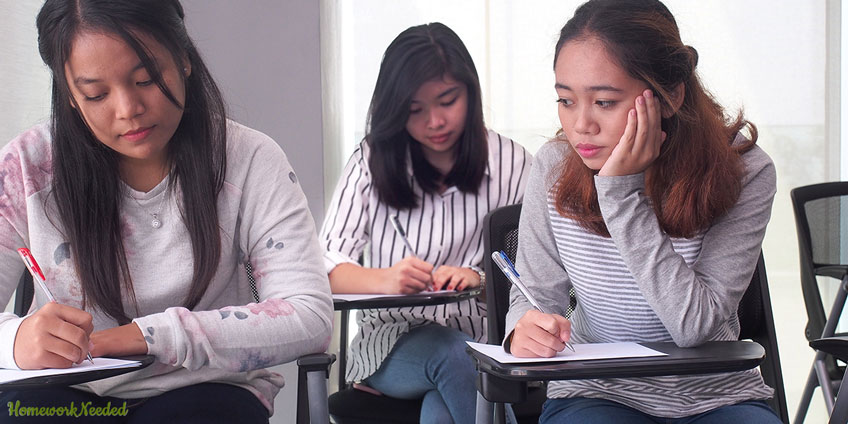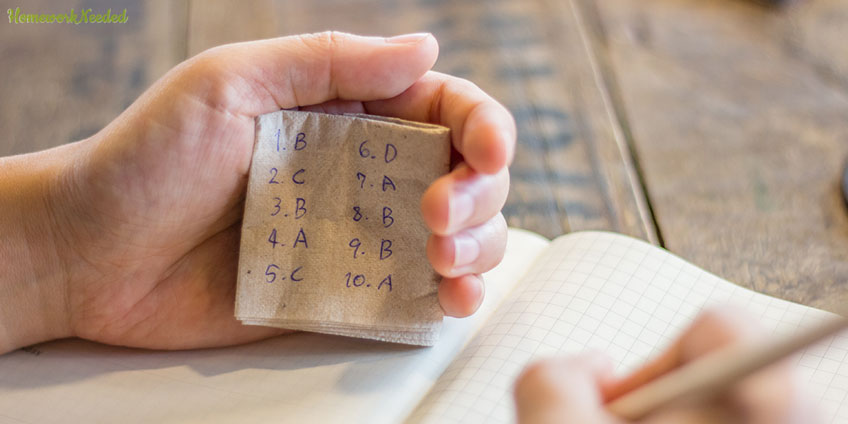
Another name for plagiarism is “academic dishonesty,” assuming that a student tried to cheat the system and get a grade for the work they have not accomplished. What plagiarism actually stands for is presenting the work of another person like it is your own, that is, without referencing or citing the source or, what is worse, copying or paraphrasing the paper that was already submitted to the same or different college.
It is not only the problem of honesty, though. On the websites of most universities you will find a statement that plagiarizing is unethical (both in regards to the teacher and the person whose work was copied) and the measures taken to prevent or punish it are strict.
What Are College Policies Regarding Plagiarism?
Most American colleges and universities have a similar list of consequences in case plagiarism was detected. For example, Bowdoin College has the following regulations in case the paper was plagiarized:
- failure of the assignment;
- course failure;
- grade reduction;
- suspension;
- dismissal.
It is also stated that some other measures can be taken depending on the specific case, like academic probation or a formal reprimand.
Why Is It So Serious?
Mainly, the tutors see plagiarism purely as a sign of laziness or an attempt to cheat. Thus, the matter is taken seriously so the other students do not feel tempted to submit an assignment they have not completed.
Types of Plagiarism
Plagiarism is more than just copying the content bluntly. It can, indeed, happen unintentionally, and that is why each situation should be considered on an individual basis.
Therefore, there is no single answer to the question “What should I do if I was caught plagiarizing in college.” First of all, let us see what kinds of plagiarism exist and then analyze how to amend the situation.

Direct Plagiarism
This is the most difficult case, as while your teachers will assume that you are a cheater, you will know the reason why plagiarism occurred. Health problems, being busy with earning a living and saving up to cover the tuition fees, studying in two colleges at the same time, personal issues like family problems and being occupied with all the assignments could be the reasons why you did not find enough time to work on your paper and finish it without any plagiarism.
Honesty Is the Best Policy
Indeed, if a person is in a tough situation, plagiarism seems a solution students later regret making. The best thing to do first is to explain why this happened and show that you realize that it was a wrong thing to do. Revealing the story as it truly is might help you find understanding among the teaching staff. Next thing to do will be to…
Ask for a Resit and Treat It Responsibly
Resubmitting the assignment by replacing it with a new paper will be the best way out. Usually, some points are deducted from the final grade in such cases, but you will still be able to finish your course instead of retaking it. The crucial part is to indeed work to the best of your abilities to prove you were trusted for a reason.
Also, make sure to do research on how to avoid any other kind of plagiarism in a new paper. There are plenty of resources that will guide you on your way and even specific services of checking the paper for plagiarism before submitting it. This will free your mind from worrying about the originality of the newly completed paper.
Mosaic Plagiarism
The most common reason for being caught with this kind of plagiarism is not understanding how to paraphrase academically. Usually, the best way to avoid such a problem would be to summarize a paragraph or a few pages in one sentence with a citation.
The student is required to analyze the source and use the ideas from it in the paper without directly quoting it, but it can be specifically hard to do if the source is related to natural sciences or technical sciences, since a lot of terms are used in them. This raises a chance of getting some mosaic plagiarism in the paper unintentionally. If you explain this to your teacher, college stuff might let you resubmit the paper with a correctly applied academic paraphrasing.

Self-Plagiarism
In case a student is taking similar courses, there is a risk they complete similar papers and submit them to the same college. Also, in case you were working on the same paper in high school, you might feel like improving it and submitting to college can work. You actually can, but for this you will need to conduct a research to make a paper stronger and heavily paraphrase the parts that will remain similar in the terms of content.
The best way to avoid such plagiarism is to prevent it. If your tutors allow you, you can submit parts of a paper or the same paper to two college courses, so better ask first. In case they refuse, you will be aware of a possible plagiarism detection threat and will have enough time to finish both papers.
Note
Stating the same content in a few spots throughout the paper may also be detected as self-plagiarism.
Ask for Help
In case you feel you exhausted your ideas, but there are still so many words to write, do not hesitate to communicate to your classmates about the content. Researching some more on the related topics or key terms will be helpful too. If none of this is an option, you may consider writing services to assist you with the original part of the work or a complete paper.
It will be best to ask for homework help instead of risking to get a failing grade. Your goal is to do anything to prevent the same content appearing in the papers you submit.
Accidental Plagiarism
Even though this is not the only kind of plagiarism act a college student can commit unintentionally, accidental plagiarism is the easiest to see a reason for and fix the situation as a result.
Anything could distract the student, causing wrong referencing, and if the sources are numerous, the mistake might be challenging to detect. Moreover, if you use sources from the web, some page numbers may be indicated wrong, resulting into a non-credential citation.
How to Avoid?
- Make sure to take time and proofread the work, checking the citations as you move forward;
- Read the format guide given in your college carefully to know what should be cited and in what way;
- Get a sample of a similar work and compare referencing;
- Ask someone who knows how to reference properly so they can double-check your work.

Can a Student Submit a Complaint?
Lately, the opinion that students should be equally penalized for plagiarism is being discussed. For example, Baroness Deech who runs the Office of the Independent Adjudicator for Higher Education in the UK claims that there are many complaints by the students that could have been resolved having taken personal situation into account.
He accused the system of education that the way studying materials are presented does not help the students work on analysis skills, and the notes given are not enough to complete a college assignment. Thus, the student should look for alternative sources and browse the web instead of working with actual books and writing works based on the analysis of the content.
Thus, sometimes you might phrase the question as “What should they do to eliminate plagiarism?” instead of “What should I do if I got caught plagiarizing in college?”
Fun Facts About Plagiarism in Different Countries
Academic dishonesty is an issue in all the countries; however, in their article “Attitude to plagiarism in different European countries” Fontynek and Cech state that:
- The highest rate of understanding about plagiarism among teachers is in Cyprus, Poland, the Czech Republic and UK. The teachers in Bulgaria and Lithuania colleges appear to be the most tolerant statistically.
- Teachers from Cyprus and Lithuania deny the existence of anti-plagiarism policies.
- Students in Poland, Bulgaria and Cyprus colleges are aware of plagiarism, but are not aware of the penalties.
- Students in the post-communist countries did not encounter plagiarism issues before or while studying in college.
As with many other problematic cases, it will be better to prevent plagiarism than having to think fearfully: “I got caught plagiarizing in college, what should I do?” However, since situations differ, there is always a way out and a chance to undergo as little punishment as possible even in case college detected plagiarism in your work.

